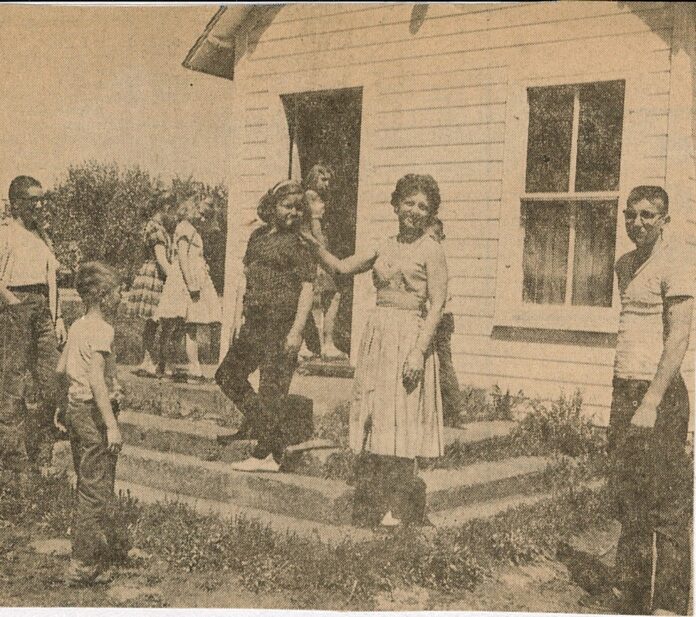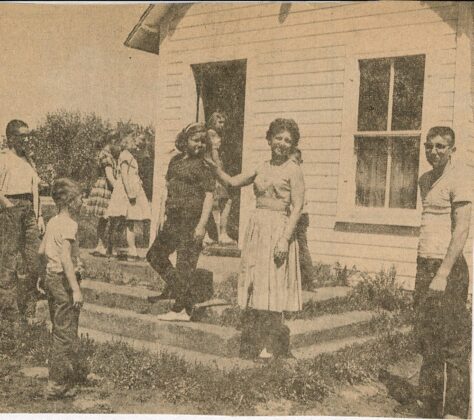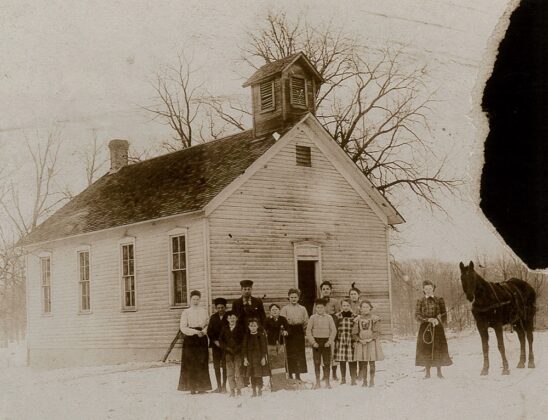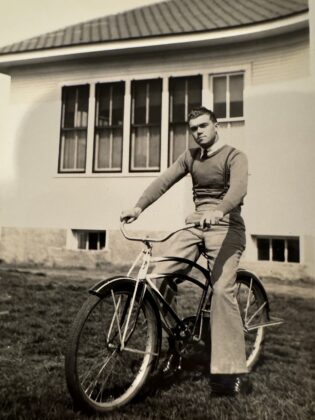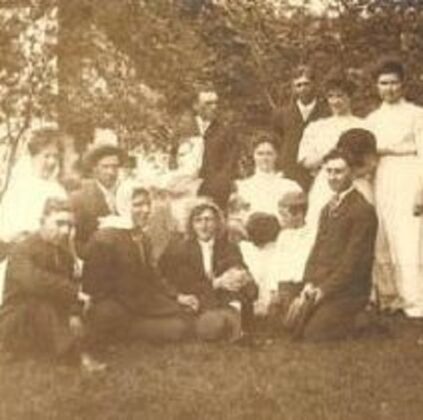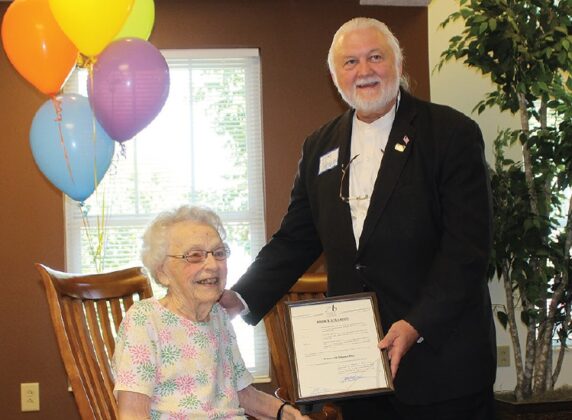This article comprises research conducted by Sue Leslie, Myrna Griffith and Deanette Snyder.
The earliest teachers for the settlers moving west were the parents, usually the mother. They would use a few books that the parents had when they went to school or were able to borrow from friends and neighbors. If families lived close, they often would group their children together to learn. As more families moved in, schools were built.
At first most of the teachers in these schools were male, but as they were called to serve in the army, women took their place, and teachers were required to have more training. That training could begin in high school, where the choices for juniors and seniors were college preparatory, business/office or Normal Training.
During those years in Normal Training, students were taught what they would need to teach in rural schools along with assisting with classes in the lower grades. Upon graduation and passing the State Normal Training tests, if you were 18 you were certified to teach in a rural school.
Other training options included going to college or a Normal School for three months upon graduation — possibly late in the summer — and then taking the teacher’s examination at the county superintendent’s office. This would entitle you to a first or second grade county certificate.
One year at Normal School earned you a one-year certificate and allowed you to teach in a consolidated school. A two-year certificate let you teach in a town school. Normal Schools were located in Perry, Adel and Dexter.
Wilma McManus, who taught at several rural schools and was the Dallas County Superintendent of Schools before becoming principal in Waukee, said the duties of country school teachers were far more numerous and perhaps more strenuous that those of today’s teachers.
“You had all of the janitor duties,” McManus said. “You had to carry in the coal and start the fire in the morning. You had to carry in the water — unless you could get an older student to do so — and at the end of the day you carried out the ashes from the stove as well as the water. Other tasks were to sweep the floor — mopping it if there was mud — dump the waste basket and empty the pencil sharpener. The teacher was the nurse as well. With few of the schools having phones, if a child got sick or hurt, it was up to the teacher to take care of them.”
Back in the late 1920s, a teacher at a school west of Perry would walk across the railroad bridge to her school. On some days, before starting the wood-burning stove and bringing in water, she often had to chase the tramps out of the school. There was no vandalism or theft. She wasn’t afraid. It was the era of the Great Depression.
Early rules prohibited teachers from being married, and many a teacher married a farmer from the area and settled down to life on the farm. This was only one of quite a list of rules for the teachers to abide by. Among them were: To be home between the hours of 8 p.m. and 6 a.m. unless at a school function, not to loiter downtown in ice cream stores, not to smoke or drink beer, wine or whiskey and not to wear face powder, mascara or lipstick.
Discipline in country schools took a much different form from what it does now. Punishments included standing in the corner, sitting in the hall, writing what you did wrong a set number of times, staying in at recess and sometimes it might just be a good old spanking.
However, many of the teachers interviewed in 1978 by Adel High School students in their publication, “Wildrows”, felt that discipline wasn’t a big deal. As Wilma McManus said, “I think the relationship between the teacher and students was probably more comfortable. Everybody was kind of on an equal basis, and you were a big family. Kids knew the teacher, and the teacher knew the family.”
Betty Barge, a former student, agreed. “I think the pupils were well-behaved because they were probably more afraid of a little brother or sister telling mom and dad what they had done wrong in school, than of being punished by the teacher,” she said.
Nevertheless, the teachers were remembered fondly years later. Charley Thompson was thrilled that many, many years after having Wilma McManus as his teacher, he was able to attend her 100th birthday party.
Those teachers remember their experience fondly as well. Kaye Harmann Peoples, who was the last teacher at Alton School in 1961, said, ”I am now 96 years old. At this age, there is a lot more to look back at than to look forward to. Alton School is one of my good memories. I enjoy visiting the school at Forest Park whenever I am in Perry.”
In an ongoing effort to preserve the history of our township schools, we are seeking stories about the teachers who affected the lives of so many students in Dallas County. If you have any information about them, our group would like to hear from you. Please contact Myrna Griffith at wpldirector@minburncomm.net, Deanette Snyder at deanettesnyder@gmail.com, or Sue Leslie at densueles@aol.com.



